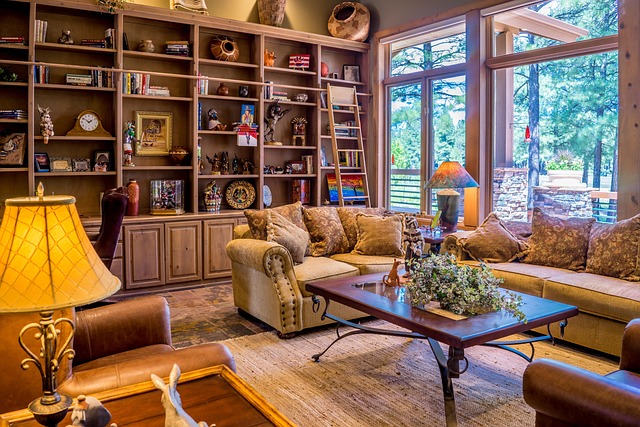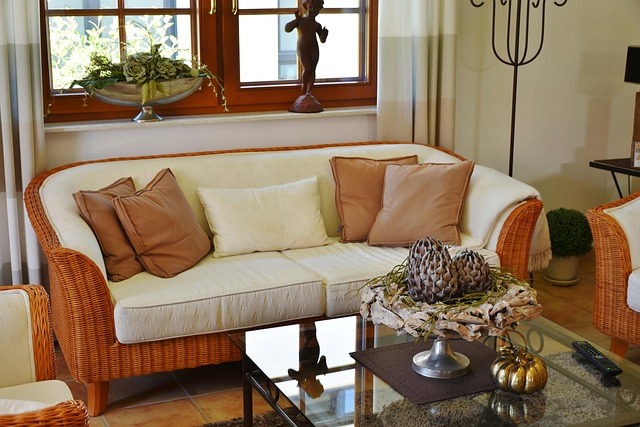Creating personal spaces is vital for students aiming to balance comfort and social life in college. By using room dividers, strategic furniture placement, and open communication with roommates, students can maintain mental well-being while enjoying campus social aspects. Key tips include defining exclusive zones, managing noise levels, and fostering an amicable environment that harmoniously blends privacy and camaraderie. Ultimately, achieving the perfect balance supports academic goals and enhances overall student living experiences.
Transitioning to college life can be exhilarating yet overwhelming. To thrive, students must master the art of creating comfortable and balanced living spaces. This guide offers practical advice on defining your personal sanctuary through strategic space creation, navigating social engagement for optimal well-being, ensuring privacy in shared housing, and transforming your room into a cozy haven. We also delve into effective time management strategies to harmonize academic pursuits with enriching social interactions, enabling students to fully embrace their college journey.
- Creating Personal Spaces: Tips for Defining Your Comfort Zone in College
- Balancing Social Engagement: Finding the Right Amount of Student Interaction
- Privacy Strategies for Student Housing: Ensuring a Peaceful Living Environment
- Making Your Living Space Inviting: Decorating and Organizing for Maximum Comfort
- Time Management for Students: Achieving Balance Between Study and Social Life
Creating Personal Spaces: Tips for Defining Your Comfort Zone in College

Creating Personal Spaces is a vital aspect of achieving balanced and comfortable student living. In college, students often find themselves in new environments with diverse social dynamics. To maintain a sense of comfort, it’s crucial to establish boundaries and define your personal space within shared housing or dormitories. This involves respecting others’ spaces while also carving out areas that are exclusively yours for study, relaxation, and reflection. Consider using room dividers, hanging curtains, or strategically placing furniture to create designated zones.
Privacy is a key component of creating a balanced student life. While social interactions are a significant part of the college experience, having personal space ensures you can recharge and maintain your mental well-being. When living in close quarters with roommates or fellow students, open communication is essential. Discuss expectations regarding noise levels, visitors, and shared responsibilities to foster an amicable environment that supports both social life and comfortable living.
Balancing Social Engagement: Finding the Right Amount of Student Interaction

Maintaining a healthy balance between social engagement and personal time is essential for comfortable student living. While college offers a vibrant social scene, it’s crucial to establish boundaries and respect your own privacy needs. Many students struggle with finding the right equilibrium, often leading to burnout or feeling overwhelmed. The key lies in understanding your preferences and communicating them effectively. Some may thrive in a bustling environment, joining multiple clubs and making friends easily, while others require quieter moments to recharge.
For those prioritizing balancing privacy college, choosing suitable housing is vital. Privacy student housing options, such as apartments or dorms with individual rooms, allow for personal space and quiet study time. However, it’s also beneficial to participate in student social life, fostering connections through organized events, study groups, or even casual hangouts with roommates. Finding the perfect balance means creating an environment that supports both your academic goals and social well-being, ensuring a comfortable living experience.
Privacy Strategies for Student Housing: Ensuring a Peaceful Living Environment

Privacy is a key aspect to achieving comfortable and balanced student living. In shared student housing, striking the right balance between social interaction and personal space can be challenging. To establish a peaceful environment, students should implement thoughtful privacy strategies. This might involve utilizing room dividers or curtains to create designated study areas, setting clear boundaries with roommates regarding common spaces and personal time, and respecting each other’s need for solitude.
Additionally, active communication is vital. Open discussions about preferences, noise levels, and visit hours can foster a harmonious living situation. Utilizing noise-cancelling headphones, investing in a quality lock for your room, and establishing house rules that prioritize mutual respect contribute to creating a sanctuary within the shared space, allowing students to effectively balance their social life with moments of quiet and privacy needed for academic success.
Making Your Living Space Inviting: Decorating and Organizing for Maximum Comfort

Creating a welcoming and organized living space is essential for students aiming to achieve a comfortable balance between their personal time and social life in college. Decorating your space with items that reflect your personality can make it feel more like home, fostering a sense of relaxation and privacy amidst the hustle and bustle of student life. Consider using soft lighting, cozy blankets, and comfortable seating areas to instantly enhance comfort levels.
Organizing your belongings efficiently is another key aspect. Designated storage spaces for books, clothes, and electronics not only keep items tidy but also reduce visual clutter. A well-organized space contributes to a calmer mind, making it easier to focus on studies or unwind without feeling overwhelmed. Balancing privacy and social areas within your living space can further support this goal, ensuring you have dedicated zones for both quiet time and engaging with roommates or visitors.
Time Management for Students: Achieving Balance Between Study and Social Life

Managing time effectively is a cornerstone for achieving a balanced student life, especially when trying to juggle academics and social commitments. Students often face the challenge of balancing their privacy and social lives while navigating college. Finding comfortable living spaces that offer both personal retreat and easy access to social interactions is crucial. This involves prioritizing tasks, creating structured schedules, and setting realistic goals. By allocating specific time slots for studying, attending classes, engaging in extracurricular activities, and socializing, students can maintain a sense of control and reduce stress.
Privacy is an essential aspect of comfortable student living, enabling individuals to recharge and focus. Student housing options that offer private study areas or quiet common spaces allow for a healthy balance between social engagement and personal time. Maintaining open communication with peers and leveraging technology for efficient organization are additional strategies to optimize both academic and social experiences.






